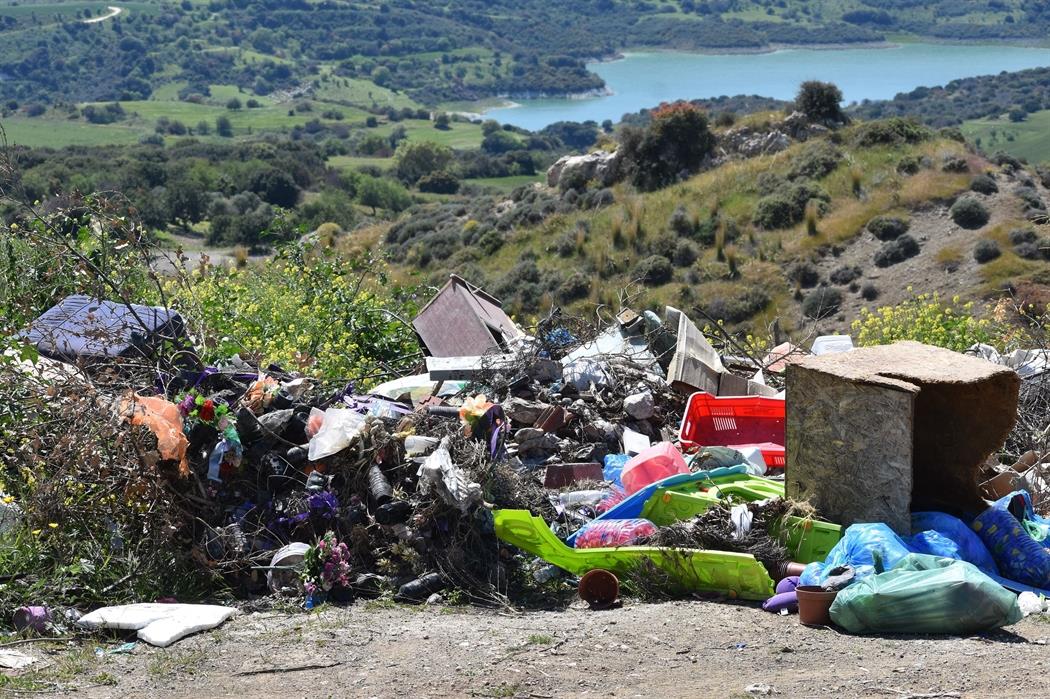It appears to be widely accepted now that the fire that devasted the Polemi area last week most probably originated in an illegal landfill. On Friday a fire between Alassa and Monagri in Limassol was confirmed to have started from a pile of rubbish thrown on the side of a road.
At the House environment committee on Wednesday, chairman and Green Party MP Charalambos Theopemptou said that although an earlier fire at the dumpsite in Paphos was extinguished, it seemed to have reignited shortly thereafter, causing the major blaze that swept through the area.
Disy MP Savia Orphanidou said that despite authorities being alerted to the earlier fire, “no effective action was taken to prevent a subsequent disaster.”
The fire ravaged over 30 square kilometres of agricultural land and trees, killed around 120 animals, burnt 20 beehives, damaged or destroyed 23 residential properties, a solar farm, a car dealership, two agricultural warehouses, and a church.
MPs were told there were approximately 120 known illegal dumpsites across Cyprus, though Theopemptou and other MPs believe that number could be double or triple.
He put it down to “a real failure in household waste management” and a lack of inspections. He is right. Buried natural materials at dumpsites produce highly flammable gases, posing a risk of spontaneous combustion.
The Cyprus Mail last weekend also highlighted fears among residents of Tsada village where a similar illegal dump was expanding and posing the same danger.
Meanwhile on Wednesday, the cabinet approved €2.8 million in aid to relieve farmers affected by the fires. Interior Minister Constantinos Ioannou said a further €700,000 was been made available for other residents and enterprises that were impacted.
This aid totals €3.5 million and is only the cost of compensation. It doesn’t include how many millions were spent in man hours to evacuate five villages and battle the fires in Paphos.
All of this money could have gone into prevention, clearing illegal dumps, installing cameras at fly-tipping hot spots, extra drones to monitor certain areas and creating more green spots where big items can be legitimately disposed of.
But the government as usual, and the same goes for its predecessors, just pats itself on the back after the fact and brags about how quickly it has dished out millions in compensation.
Why couldn’t the same money have been poured into ensuring to the greatest extent possible that these kinds of potential dangers are neutralised in the first place?
There is no excuse that’s good enough. The existence of illegal landfills has been known for decades. Crossing your fingers and hoping something illegal won’t lead to a disaster is not a valid policy.
This has been another classic case where the failure to act by various authorities ended up costing a lot more than it would have to act pre-emptively and not only in monetary terms but also in terms of the personal losses suffered by homeowners, the damage to farms and to the environment for years to come.






Click here to change your cookie preferences